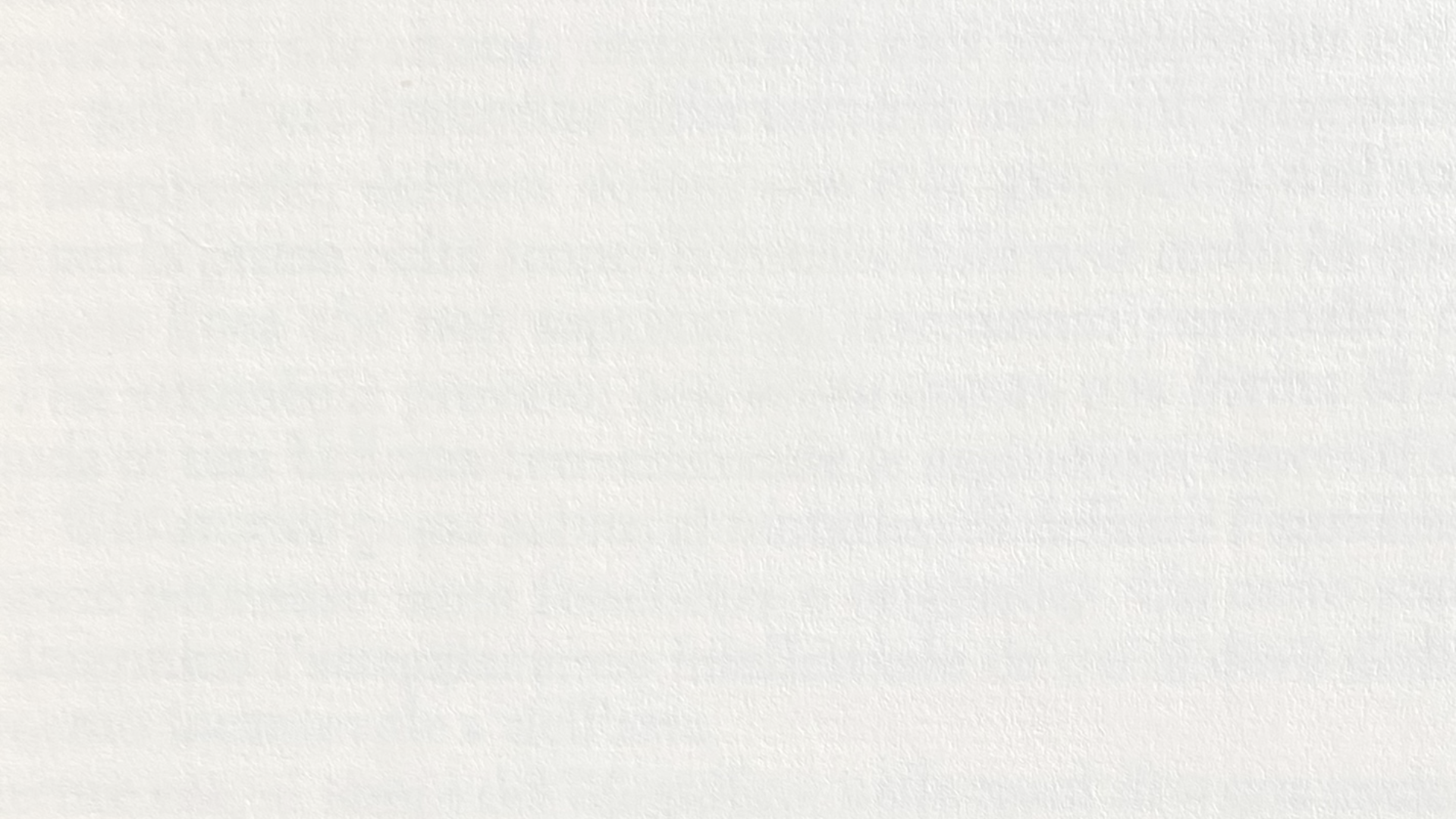
DEATHCRAFT
Journal
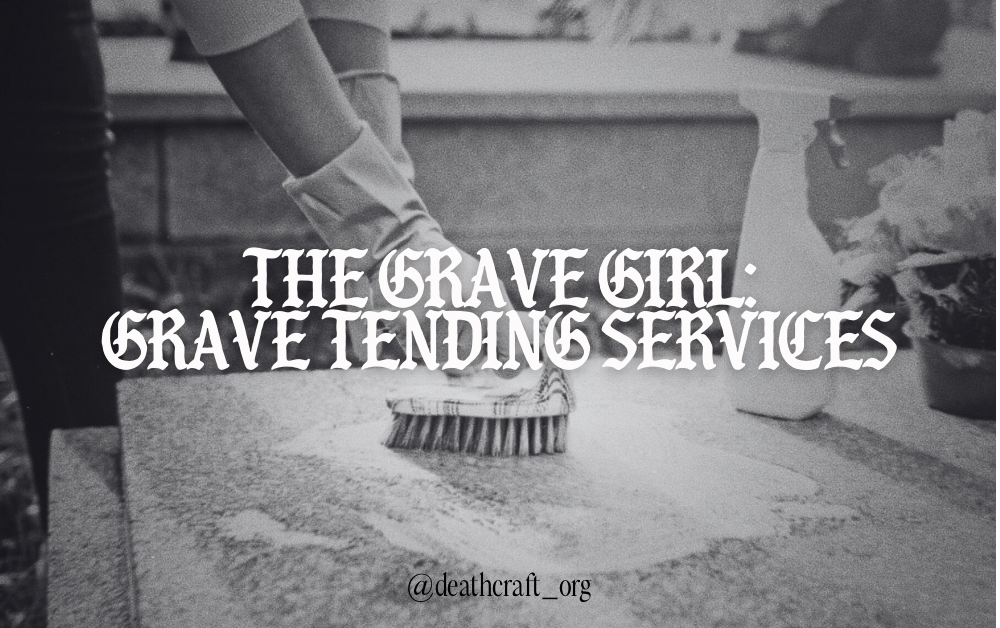
The Grave Girl — Grave Tending and Headstone Cleaning in Shepherdsville, Kentucky
Grave tending is a timeless act of love and remembrance. Through The Grave Girl at Deathcraft, I now offer grave tending services in the Louisville and Shepherdsville, Kentucky area—gentle headstone cleaning, floral offerings, and seasonal care to honor and remember your loved ones.
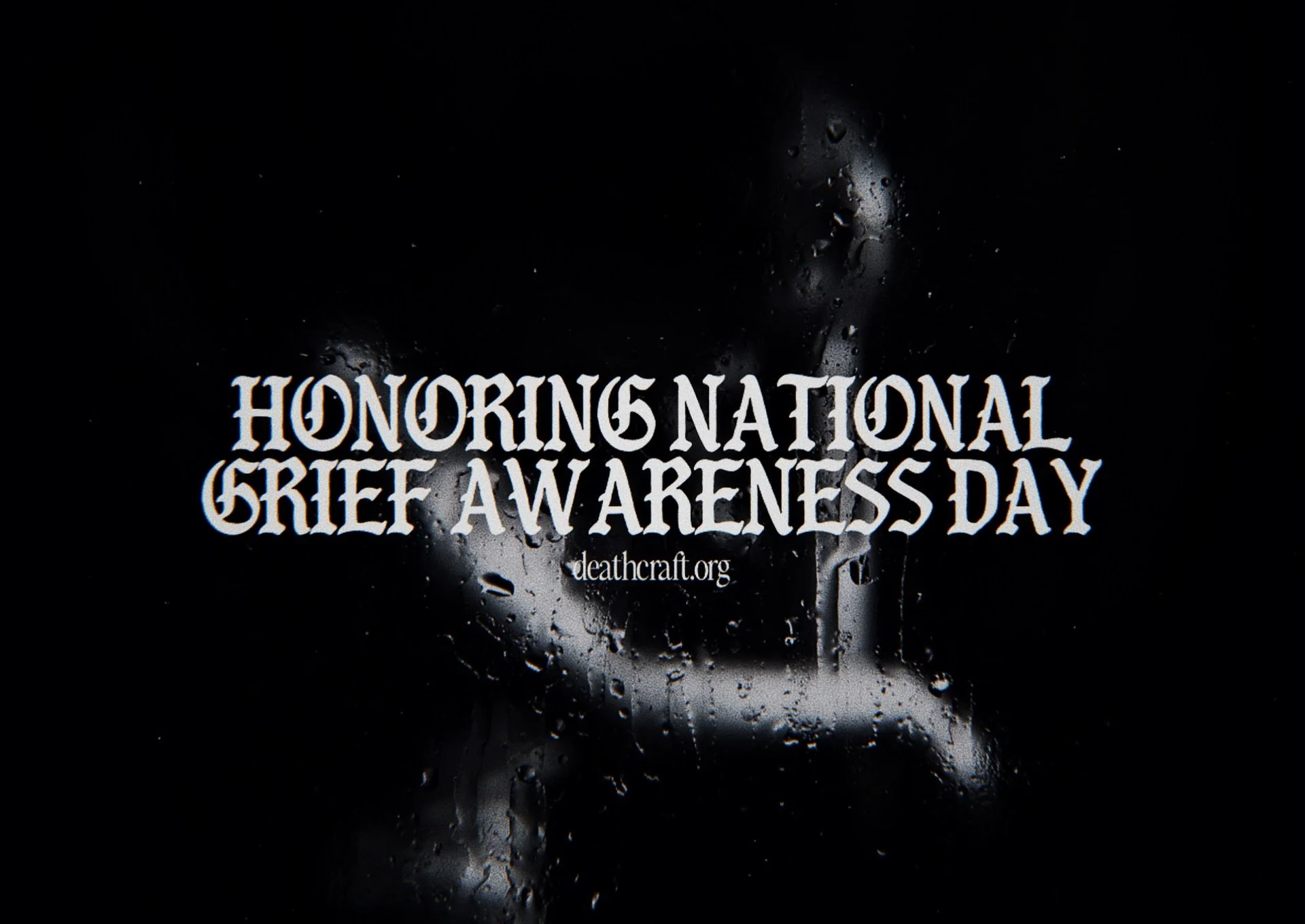
Honoring National Grief Awareness Day
Grief is not something to “get over”—it is love transformed. On National Grief Awareness Day, we pause to honor the many shapes grief takes and to remember that tending to loss is a sacred part of being human.
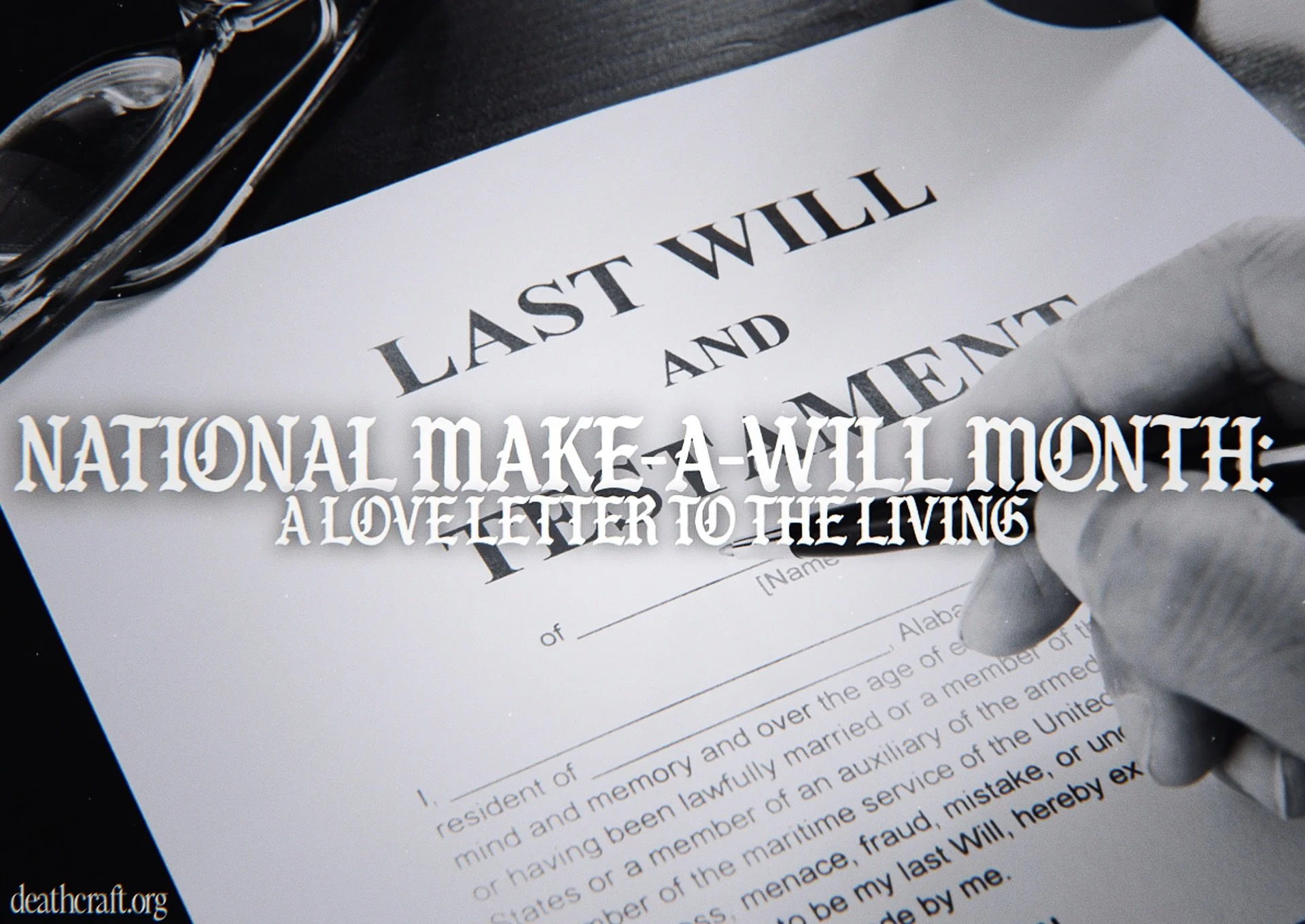
National Make-a-Will Month: A Love Letter to the Living
August is National Make-a-Will Month — a reminder that creating a will isn’t just legal paperwork; it’s sacred, death-positive care for your loved ones. Whether you’re preparing for your own peaceful transition or supporting others through theirs, writing a will is a radical, loving act of clarity in a world that often avoids talking about death. Let this month be your invitation to begin.

Lughnasadh: The First Harvest & The Sacred Art of Letting Go
Lughnasadh is more than just a seasonal checkpoint—it’s a sacred portal into ancestry, impermanence, and the quiet power of ripening. In this post, I explore the meaning of the first harvest sabbat through the lens of my Celtic roots and offer reflections and rituals to help you celebrate this potent time of year with heart, history, and magic.

International Self-Care Day: Tending the Temple in a Dying World
Self-care isn’t a luxury—it’s a sacred responsibility. On International Self-Care Day, we’re reminded that tending to ourselves is not separate from deathcare, grief work, or spiritual practice. It’s all connected. Whether you’re holding space for others or quietly unraveling in your own shadows, you deserve rest, ritual, and reverence. This is your invitation to come back to your body, your breath, your beating heart—and remember that you are worthy of care, too.
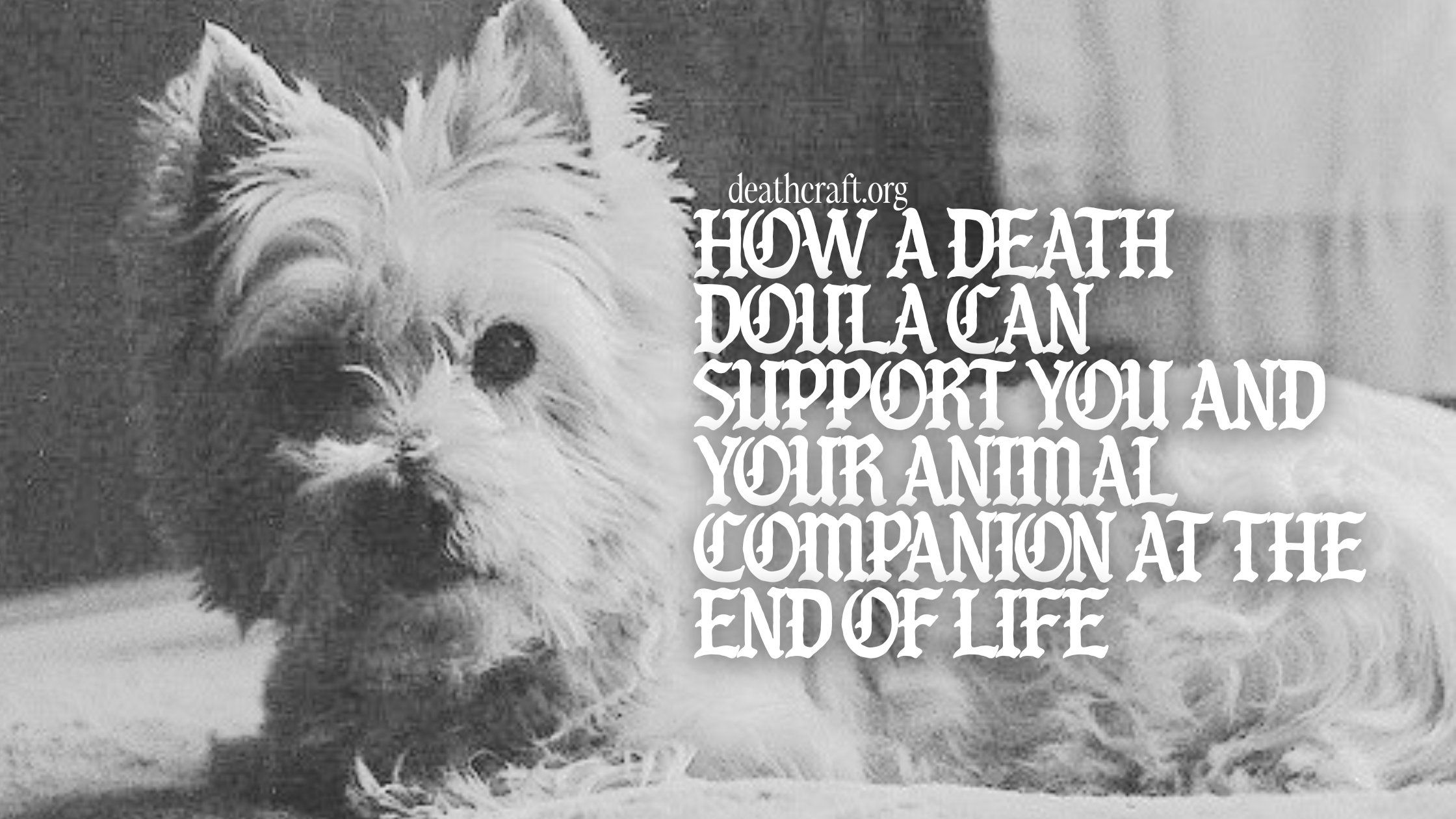
How a Death Doula Can Support You and Your Animal Companion at the End of Life
When a beloved animal companion is nearing the end of life, the grief can feel all-consuming. A death doula can help you navigate this sacred transition with compassion, presence, and ritual. From preparing for euthanasia to creating a peaceful farewell and honoring your pet’s legacy, a doula walks beside you every step of the way—so you don’t have to face it alone. At Deathcraft, we believe our pets deserve a good death, just like the beautiful life they shared with us.
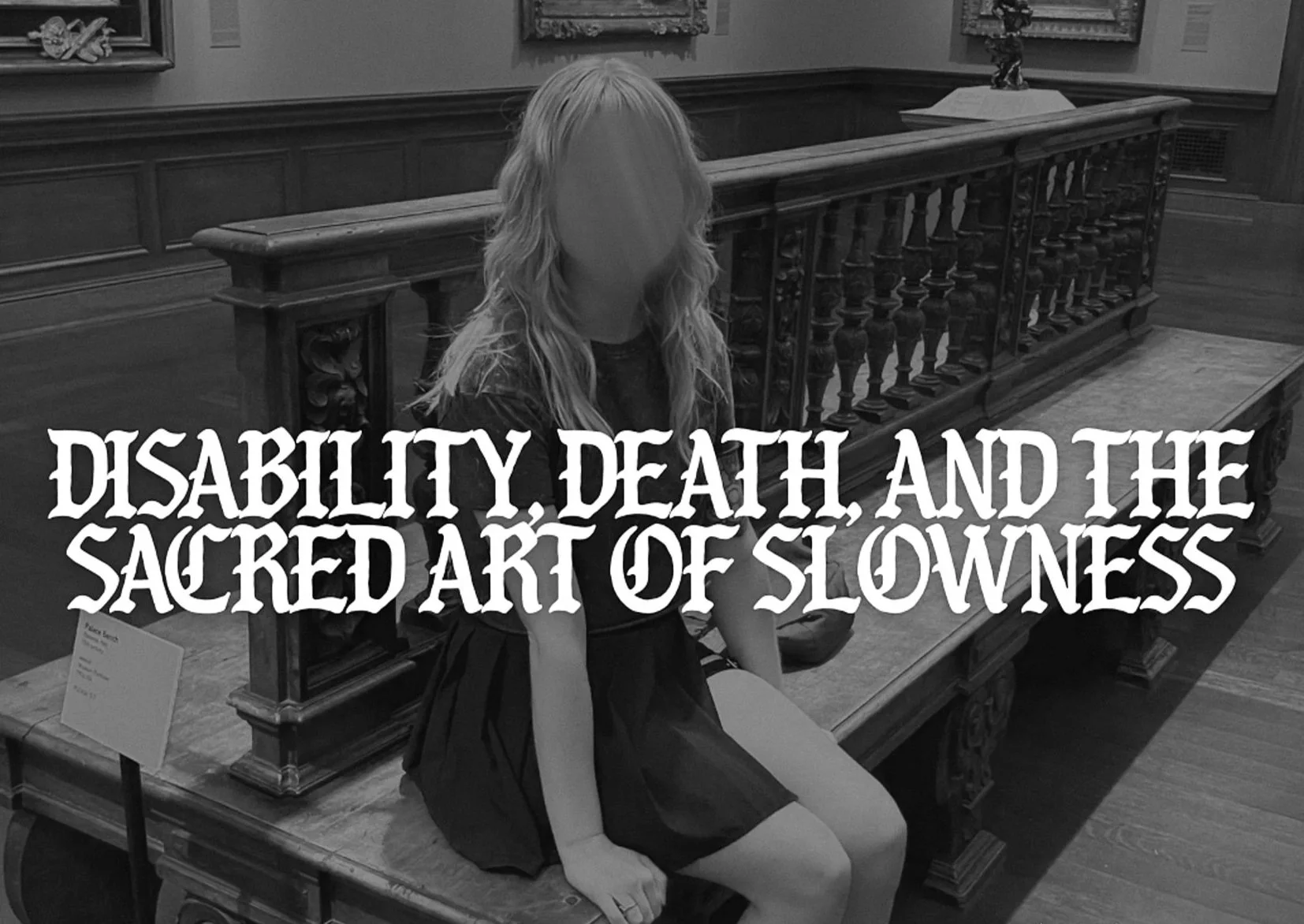
Disability, Death, and the Sacred Art of Slowness
Disability Pride Month reminds us that worth is not measured by productivity. In a culture obsessed with output, disabled bodies teach us sacred slowness — a rhythm that echoes the cycles of death, grief, and rebirth. This is an honoring of disabled wisdom, of liminal living, and of the dignity inherent in all bodies, exactly as they are.

Summer Solstice: Embracing the Turning of the Wheel
The Summer Solstice marks the height of light — and the beginning of its decline. In this radiant turning point on the Wheel of the Year, we are reminded that even at the peak of life’s abundance, change is already unfolding. To live in rhythm with the Earth is to accept that every season contains the seeds of its opposite: life and death, growth and decay, light and shadow. Embracing this sacred cycle helps us not only celebrate life more fully, but also meet death with reverence, knowing it, too, is a natural part of the turning.

The Importance of Pre-Planning for the LGBTQIA+ Community
For LGBTQIA+ folks, pre-planning for death isn’t just practical—it’s protective. It’s how we safeguard our identities, honor our chosen families, and ensure we’re remembered on our own terms. In a world that too often tries to erase or rewrite our stories, making end-of-life plans is a powerful way to say: This is who I am. This is how I want to be cared for. This is how I want to be remembered. Death doesn’t get to undo our truth.

How the Modern Funeral Industry Impacts Our Environment
Explore the hidden environmental costs of conventional funerals—embalming chemicals, metal caskets, concrete vaults, and more. Learn why greener alternatives matter.

A Brief History of Deathcare: From Sacred Rituals to Industrialized Death
Explore the evolution of deathcare from ancient sacred rites to the rise of the funeral industry. Understand how cultural shifts transformed how we care for the dead—and how we might reclaim it.

Why Choose a Home Funeral?
In a culture that often hides death behind closed doors, more families are choosing to care for their deceased loved ones at home. This practice—known as a home funeral—offers a sacred, empowering, and deeply human alternative to conventional funerals.

Home Funerals: Myths, Realities, and Legal Rights in Kentucky
In Kentucky, families have the legal right to care for their deceased loved ones at home, a practice known as a home funeral. This approach allows families to handle the washing, dressing, and laying out of the body, as well as to hold a vigil or ceremony in a familiar setting. Home funerals can offer a more intimate and personalized way to honor the deceased, often at a lower cost than traditional funeral services.

10 Reasons You Should Plan Ahead for the End-of-Life
Most of us spend a lot of time planning for major milestones in life—graduations, weddings, careers, retirement—but when it comes to planning for the end-of-life, many people hesitate. It’s an emotional subject, and one that’s often easier to avoid. However, thoughtful preparation for the inevitable can offer profound benefits not only to you, but to your loved ones as well.
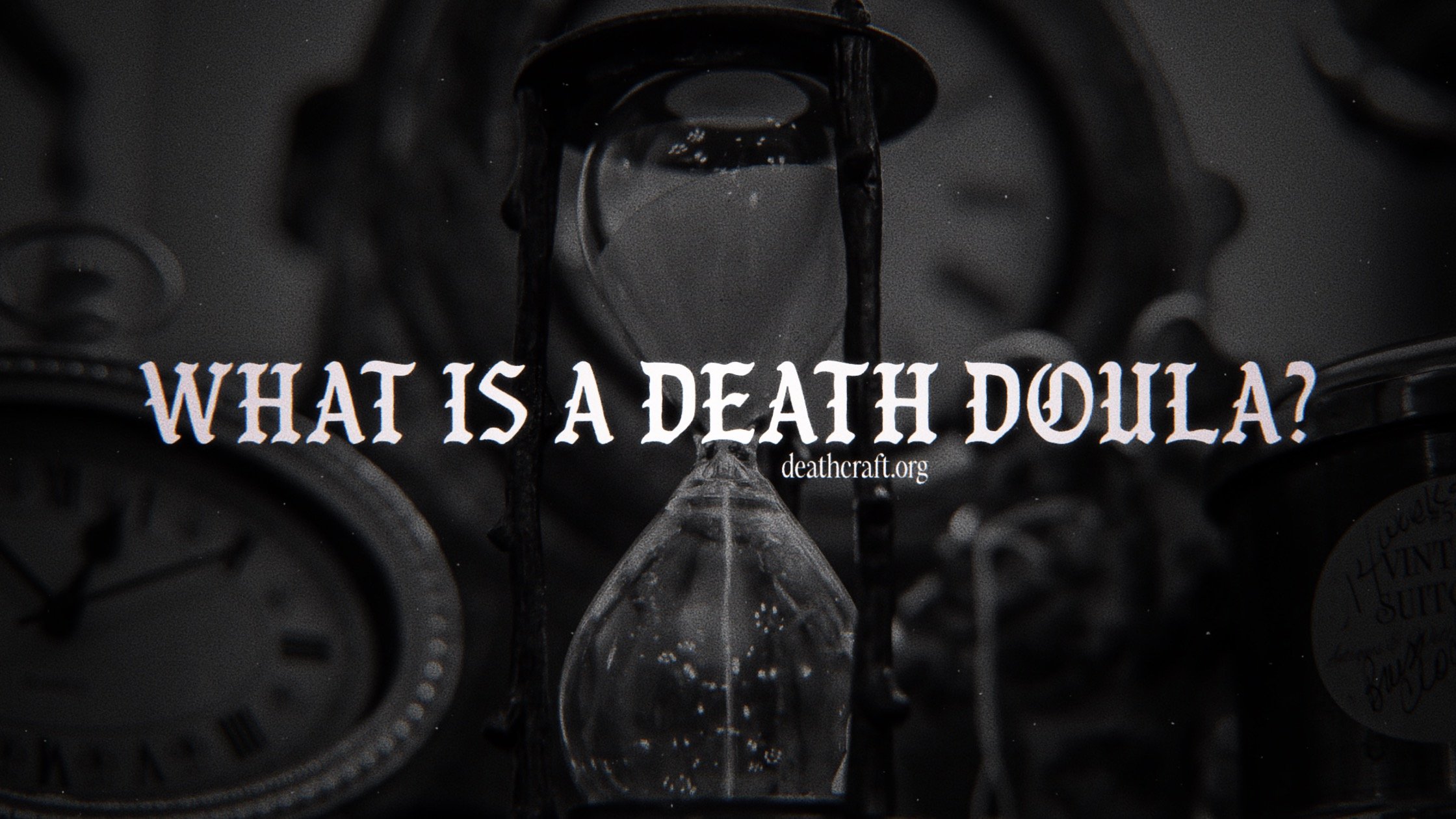
Today is National Death Doula Day.
A death doula, also known as an end-of-life doula or death midwife, is a non-medical professional who can provide emotional, spiritual, and practical support to those who are dying, as well as their loved ones. They can assist in creating a personalized approach to the dying process, offering guidance and support that respects the wishes and values of the individual.

Death Positivity: What It Is & Why We Should Care
“Death positivity is not about glorifying death itself; it’s about enriching our life experiences and accepting the inevitable. By discussing, planning, and remembering, we cultivate a relationship with mortality that honors our existence rather than evades it. So, let’s raise our glasses—not just for the living but for the dead as well. Here’s to life, love, and the inevitable end that binds us all!”
MEET THE AUTHOR
Kat Rist (she/they) is the founder of Deathcraft.
Kat is a death doula, educator, and hair stylist based just south of Louisville, Kentucky. With one foot in the sacred and the other in the everyday, Kat helps others navigate the mysteries of death and dying through a lens of nature-based spirituality, compassion, and curiosity. She’s also a licensed cosmetologist working magic with color and texture at Maeda in Louisville.
Kat is a cat mom to a sassy orange tabby named Tilly, partner to a total car guy, and proud aunt to four wild and wonderful kids. She’s deeply into spiritualism, Tarot, folklore, and the quiet wisdom of the natural world. Whether she’s holding space at the end of life or capturing a breathtaking sunset, Kat believes in honoring the cycles of life—and finding magic in every part of the journey.




